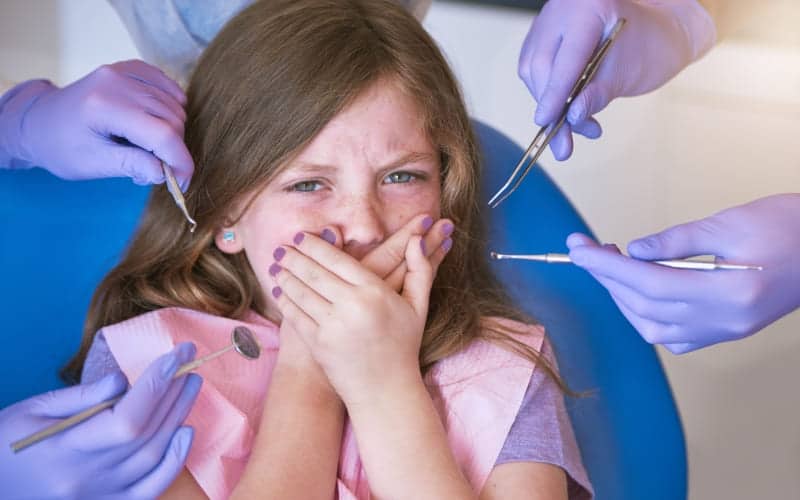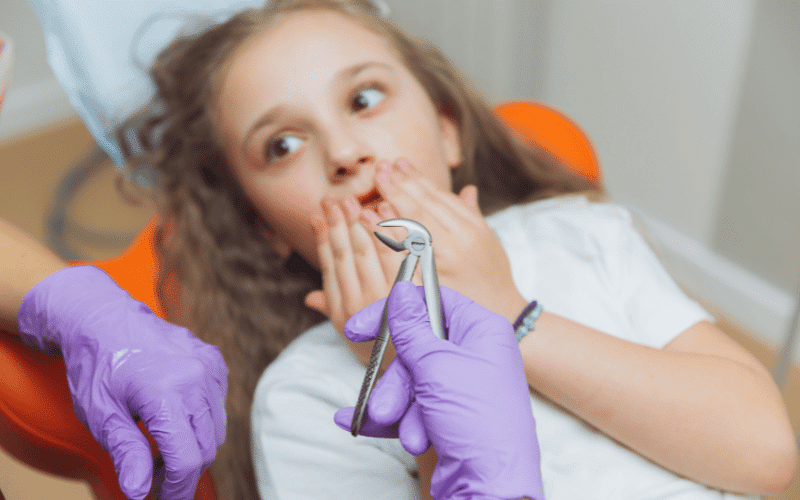Techniques to Help Your Child Overcome Fear of the Dentist

Dental visits can be daunting for many children, often leading to fear and anxiety. Understanding why your child might feel anxious about the dentist is the first step towards helping them overcome it.
Whether it’s the unfamiliar environment or the sounds of dental tools, these fears are common and can impact your child’s dental health.
Special care for dental anxiety can make all the difference in transforming a stressful experience into a positive one. By addressing these concerns proactively, you can set the stage for a lifetime of healthy dental habits.
This blog will guide you through effective techniques to help your child feel more comfortable and confident during their dental visits. With the right strategies, you can turn those nervous moments into successful and enjoyable appointments.
Creating a Positive Dental Experience
Choosing a Child-Friendly Dentist
- Look for a pediatric dentist: Pediatric dentists specialize in treating children and are trained to handle their specific needs.
- Check reviews and recommendations: Look for dentists with positive reviews from other parents. Recommendations from friends or family can be helpful.
- Visit the office beforehand: A pre-visit can help familiarize your child with the environment and reduce anxiety.
Setting Up a Welcoming Dental Environment
- Create a friendly atmosphere: Choose a dentist’s office that is decorated in a kid-friendly way with colorful artwork and toys.
- Keep appointments during quiet times: Schedule visits when the office is less busy to avoid overwhelming your child with noise and activity.
Scheduling Appointments During a Calm Time
- Avoid stressful times: Try to schedule appointments when your child is not already tired or hungry. This can help reduce their anxiety.
Preparing Your Child for Their Visit
Explaining What to Expect in Simple Terms
- Use age-appropriate language: Describe the visit in a way that your child can understand without causing unnecessary worry.
- Reassure them: Let them know that the dentist is there to help keep their smile healthy and that the visit will be quick and simple.
Using Positive Reinforcement and Rewards
- Offer rewards: Promise a small reward, like a favorite snack or a fun activity, after the visit.
- Praise them: Reinforce positive behavior with praise before, during, and after the appointment.
Reading Books or Watching Videos About Visiting the Dentist
- Choose educational materials: Find books or videos that show positive dental experiences. This can help your child visualize and understand the process.
Techniques to Calm Anxiety Before the Appointment
Practice Relaxation Techniques Like Deep Breathing
- Teach simple breathing exercises: Practice deep breathing with your child to help them stay calm. This technique can help them manage their anxiety.
Role-Play Dental Visits at Home
- Simulate a dental visit: Use a toy dental kit to role-play brushing and check-ups. This can help your child become familiar with what will happen at the real appointment.
Avoid Negative Language About Dental Visits
- Speak positively: Avoid using words like “pain” or “scary” when talking about the dentist. Instead, focus on positive aspects of the visit.
During the Dental Visit
How to Support Your Child in the Waiting Room?
- Engage them with toys or books: Bring along favorite books or toys to keep your child occupied and distracted while waiting.
- Stay calm: Your demeanor can affect your child’s mood. Stay relaxed and positive to help them feel secure.
What to Do If Your Child Becomes Upset?
- Comfort them: If your child becomes upset, offer soothing words and physical comfort. Let them know it’s okay to feel nervous.
- Communicate with the dentist: Inform the dental team about your child’s anxiety. They are trained to handle such situations with care.
Using Distraction Techniques Like Toys or Music
- Bring comfort items: Allow your child to bring a favorite stuffed animal or blanket. Playing calming music can also help reduce anxiety.
Post-Appointment Strategies
Celebrating the Visit with a Reward or Special Treat
- Positive reinforcement: After the visit, celebrate with a treat or a special activity. This helps create a positive association with dental appointments.
Discussing What Went Well and Addressing Any Concerns
- Talk about the visit: Discuss what your child enjoyed and address any concerns they might have. This helps them process the experience and feel more positive about future visits.
Reinforcing Positive Experiences for Future Visits
- Build on success: Use positive reinforcement to encourage good behavior and attitudes towards future dental visits.
When to Seek Professional Help?
Identifying Signs of Severe Dental Anxiety
- Look for extreme reactions: If your child shows persistent or severe anxiety about the dentist, it may be time to seek professional help.
Consulting a Child Psychologist or Therapist
- Professional support: A child psychologist can provide strategies to manage anxiety and help your child feel more comfortable with dental visits.
Exploring Sedation Options if Necessary
- Discuss with your dentist: If traditional methods aren’t effective, consult your dentist about safe sedation options for managing severe dental anxiety.
Long-Term Strategies for Managing Dental Fear
Establishing a Routine for Regular Dental Visits
- Consistency is key: Regular visits to the dentist can help normalize the experience and reduce anxiety over time.
Continuing Positive Reinforcement and Support
- Maintain encouragement: Keep reinforcing positive experiences and providing support to help your child feel confident about dental care.
Encouraging Open Communication About Dental Experiences
- Foster dialogue: Encourage your child to talk about their feelings and experiences. Open communication can help them feel more in control and less anxious.
Helping your child overcome a fear of the dentist takes patience and a positive approach. By creating a welcoming environment, preparing your child in advance, and offering consistent support, you can make dental visits less intimidating. Remember to celebrate small victories and address any concerns promptly. With time and the right strategies, your child can develop a more comfortable and positive attitude towards dental care. Special care for dental anxiety can go a long way in ensuring a stress-free experience for your child.


